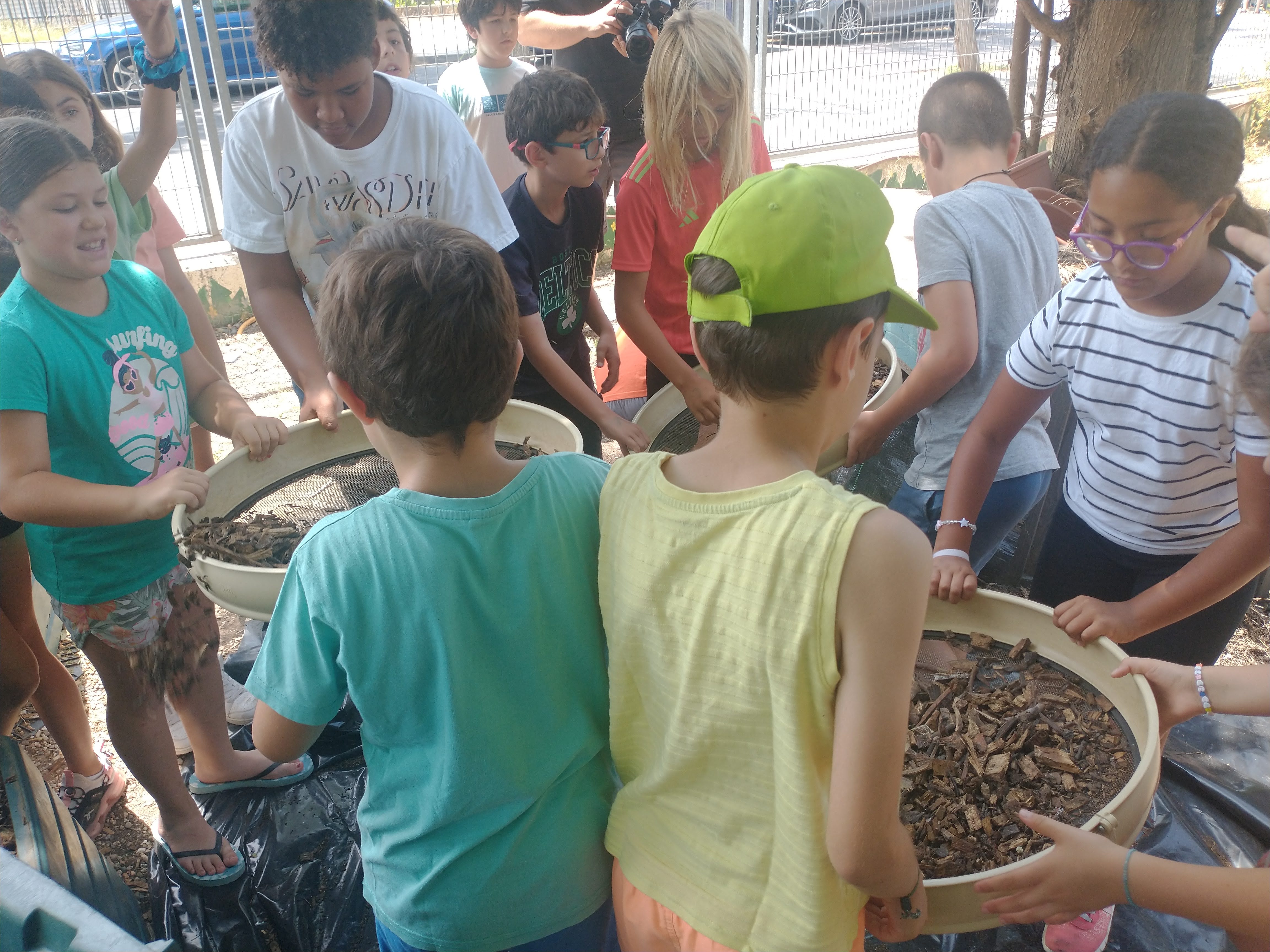A citizen science project promotes urban sustainability among Catalan students
A total of 266 primary and secondary school students from Catalonia participated in an innovative environmental education project in which educational centres, research institutions, and local administrations formed a collaborative network to raise awareness about the sustainable management of resources in cities. As a result of the project, a citizen science repository has been created that gathers all the materials used so that primary and secondary schools wishing to work on these topics during the school year can do so freely.

Led by the Institute of Environmental Science and Technology of the Universitat Autònoma de Barcelona (ICTA-UAB), in collaboration with the Department of Chemical, Biological and Environmental Engineering of the UAB, the project "Citizen Science and Sustainability in the B30 Area" (CCS-B30) has worked on raising awareness within the educational community about the impacts of water use and organic waste generation in urban environments.
To achieve this, principles of citizen science and challenge-based learning methodologies were integrated into the school curriculum to encourage the active participation of students and teachers in the search for sustainable solutions. The project promoted collaboration between the scientific, educational, and institutional spheres, generating synergies that strengthened the impact of the work carried out.
Over two years, two pilot activities were carried out as educational and environmental tools: one focused on analysing the advantages of rainwater collection and use, which included the installation of rainwater harvesting systems and awareness-raising activities about water consumption, and another on organic waste management, which introduced school composting. The initiative included the participation of third and fourth-grade primary students from Turó de Guiera, Bellaterra, and Collserola schools, and second and fourth-year secondary students from the Gorgs, Pere Calders, and Forat del Vent secondary schools, all of them from Cerdanyola del Vallès (Barcelona). The project involved the educational community in processes of observation, experimentation, and reflection across different generations.
This pioneering initiative received funding from the Ministry for Science, Innovation and Universities through the Spanish Foundation for Science and Technology (FECYT), the UAB, the Cerdanyola del Vallès City Council, and the Àmbit B30 Association. As a result of the project, more than 20 educational materials have been created, including scientific video capsules, teaching units, learning proposals, and tools for data collection. These resources were co-designed by teachers and researchers, which allowed the scientific content to be adapted to the pedagogical context of each school. The materials generated in the project can be accessed at https://zenodo.org/communities/ccb30 and the project summary videos at https://www.youtube.com/playlist?list=PLK1vjSCUwqdcd13giuOXM7GaE1JIO9BQx.
"The results obtained are very positive because the students have understood how and why it is worthwhile to compost organic waste and use alternative water sources. Through the co-design process of the pilot activities, we have managed to go one step further—from science to citizen engineering for sustainability", says Cristina Madrid, head of the project.
Project materials can be accessed HERE
Project summary videos HERE